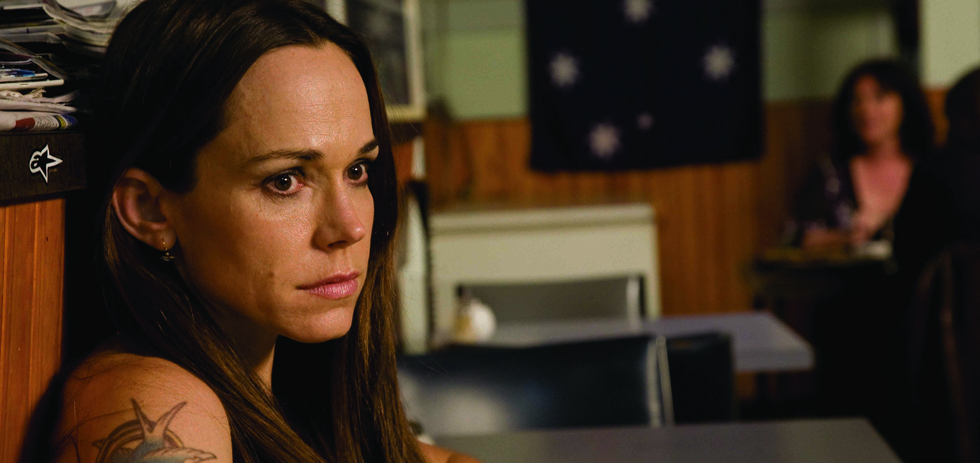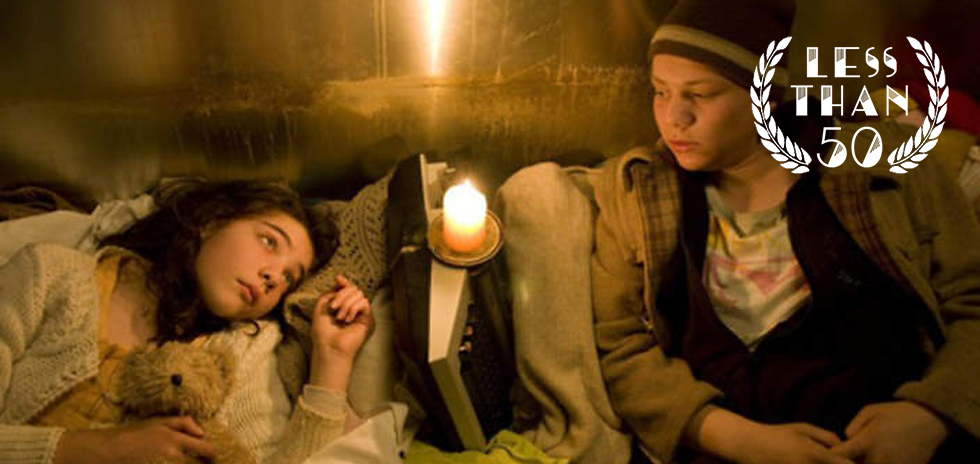In our regular column, Less Than (Five) Zero, we take a look at films that have received less than 50 logged watches on Letterboxd, aiming to discover hidden gems in independent and world cinema. This week Dominic Barlow looks at an underseen Australian drama, Blessed.
Date Watched: 10 March, 2015
Letterboxd Views (at the time of viewing): 31
Do you know how many Australian films qualify for Less Than (Five) Zero? That’s not a rhetorical question. I’ve counted literally hundreds, and it’s a fair question as to how much farther I could go. Generally, the ones that don’t qualify are the obvious successes (Crocodile Dundee, Muriel’s Wedding, etc) and horror films that have found a home in international VOD markets; stuff with a simpler appeal than a sobering drama holds. It’d be nice to say how shocking it is that our movies are so under-seen, but even with a community of obsessives like Letterboxd as the barometer, the past decade of chatter about the woes of the Australian film industry1 robs a lot of weight from that notion.
That said, Ana Kokkinos’ 2009 ensemble drama Blessed is something that should theoretically have a greater reputation. It earned more AFI nominations than any of the other LTFZ-eligible nominees from that year (Cedar Boys, Lucky Country, Charlie & Boots and all the feature docos) and won as many of them as Mao’s Last Dancer, which was much better represented. David Stratton called it “another really fine Australian film in this anna [sic] mirabilis”, and Luke Buckmaster regarded it as “at the very least, compelling”, some grievances notwithstanding. Yet here it sits at a lonely 32 views; much less than others Stratton regarded as local highlights of the year, like Samson & Delilah (308) and Last Ride (128). Having been the 32nd of those, it’s a bit clearer as to why. It spurns the cinephilic love that would boost the number, because in trying to capture numerous parent-child dysfunctions among the Australian working class, it sometimes reduces them to moments that are comically despondent. And yet, what could be more fitting for LTFZ, a feature dedicated to giving love to the under-loved, than a movie about people who are exactly that?
It has more than that going for it, thankfully. There’s some interesting formal experimentation going on, which is a nice hallmark of the better Aussie films of recent years.2 The script adapts a 1999 play, Who’s Afraid of the Working Class?, which consists of four stories respectively written by the likes of Andrew Bovell (Lantana, Strictly Ballroom) Christos Tsiolkas (The Slap novel), Melissa Reeves and Patricia Cornelius (both primarily playwrights). All four return to pen this new version, and while the play keeps their stories separate, the film re-tools them so it can play out in distinct halves. One is concerned with restless children, causing trouble or wandering the streets, and the other with their mothers. Both starting in their early-morning slumber to the strains of Cezary Skubizswesi’s dreamy theme song,3 and both reach a climax as the sun sets. Such a radical narrative departure is commendable by itself, especially from the same people who wrote the source material ten years earlier, though Jill Bilcock’s editing also deserves credit for finding graceful balances and junctions between each of the discordant families.

The characters within said families are also among the film’s strengths. Sophie Lowe and Harrison Gilbertson are the most convincingly troubled out of the young cast, being respectively afflicted by their parents’ addiction and financial woes, although Gilbertson is pulled into the orbit of a portentous subplot involving an aging Marxist (Monia Maughan). Later, Deborra-Lee Furness and Victoria Haralabidou are the parental characters who most deftly avoid caricature in their maternal angst — though Furness has the added benefit of playing opposite William McInnes, who plays a mean sadsack like no-one else — but they all work in painting coherent pictures of their flawed family units. A singular addition next to these is Wayne Blair (future director of The Sapphires), who confronts his colonial upbringing in a scene so beautifully played as to surpass the oddity of its flown-in racial themes. Even more impressive is the one belonging to Frances O’Connor, the recipient of the film’s sole AFI award, who makes up for some clanging exchanges early on with possibly the most gut-wrenching display of parental guilt I’ve seen in any movie. It’s solid work overall, and not unusual given Australia’s long-kept stable of acting talent.
The only real problem they face is that you’d suspect from seeing the naff title of the original play, along with the boldfaced allegory of Tsiolkas’ more popular follow-up project The Slap. From Miranda Otto’s chain-smoking pokies addict to the two runaways (Reef Ireland, Eva Lazzaro) lighting candles in a charity clothing bin they’ve called home, their actions and dialogue ring with that broad kitchen-sink austerity that has rankled the local press for years (among other common criticisms that have thus rankled industry proponents, and thus critics again). However, these are mannerisms and tones dependent on a given audience’s tuning for “honesty” in a film, rather than qualities more heavily embedded in the text. In that way, they are less crucial to how it serves its own mission, and Kokkinos is serving hers well here. She and cinematographer Geoff Burton have a good eye for new frames to hop to within a scene, as well as when to hang back and let the solid cast do their work, as in one enjoyable scene between Otto and McInnes in a pub. If being unsubtle is a sin, than it is forgivable here, given the size of the cast and the disparate stories that need to be massaged into a uniform piece.
Where the damage of its dourness becomes clear is in wider context. From its origins in the MIFF Premiere Fund — a gallery of rapidly-come-and-gone chances to #support #aussie #film — to its prop-up status in box-office thinkpieces, it’s a movie that feels made for people either in the industry or aspiring to be there, and it seems that they aren’t logging Letterboxd views. Still, while it makes even the sight of Otto shaking her rump to the Angels feel like a civic duty, there’s a nobility of purpose and craft that shouldn’t be ignored. Blessed has the capacity to inspire both admiration and caution, and however prejudiced you might be to this country’s recent cinematic output, it’s worth watching even just to find out where you land.
